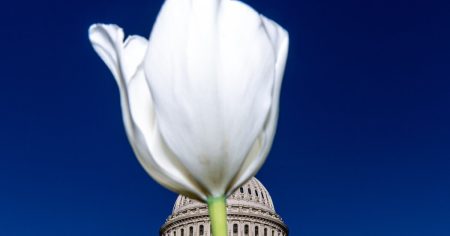Last Monday, Donald Trump made a statement that abortion rights should be decided by each individual state. The following day, the Arizona Supreme Court, led by Republicans, brought back a 160-year-old abortion ban without exceptions for rape or incest. The court’s decision, made in a 4-to-2 vote, asserted that the ban was still enforceable despite more recent legislation. This restrictive law will now affect millions of Arizona residents, even though they had no say in its revival.
The connection between the Arizona Supreme Court’s decision and former Governor Doug Ducey’s efforts to expand the court with conservative justices is clear. Ducey appointed all four justices who ruled in favor of the abortion ban, including Clint Bolick, known as a “movement jurist” who aligns with conservative networks outside of the legal system. This decision reflects a broader trend where Republican-controlled institutions are reshaped to generate more power for the party.
The argument for states’ rights to determine abortion access falls short, as in many states, gerrymandered districts prevent voters from shaping their legislature to reflect their preferences. Anti-abortion Republican lawmakers remain in control despite potential pro-choice majorities. When the living challenge the will of conservative lawmakers, the response is often to revive restrictive laws from the past that limit new freedoms and ways of living.
Both the federal and Arizona Supreme Courts have restricted the right to bodily autonomy, reflecting an effort by anti-abortion activists to revive the Comstock Act, which would give government control over citizens’ sexual lives. This attempt to return to a reactionary past represents a confession of weakness by conservative forces, even as they hold institutional power. Despite this, proponents of abortion rights in Arizona are working to place the issue on the ballot in November, confident in the public’s support.
Conservative movements may achieve their desired outcomes through legislative and judicial means, but they still face upcoming elections and public opinion. Unlike a confident political movement that aims to persuade rather than dominate, conservative forces in Arizona and beyond are fighting from a position of social, cultural, and political weakness. As efforts to restrict abortion access continue, the ability of abortion rights supporters to garner public support and challenge these laws at the ballot box showcases the ongoing battle for reproductive rights in the state.















